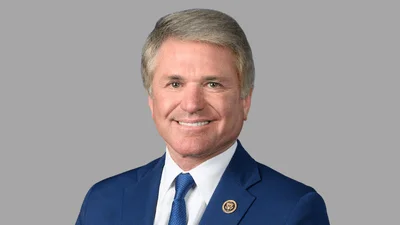Along with colleagues on this committee and throughout this Congress, I have been working to achieve a Trans-Pacific Partnership that could gain broad bipartisan support. We have laid out TPP issues and specific proposals on how they can be effectively addressed.
There has been no effective response.
TPP is now on the wrong track in key areas, so it should not be fast tracked.
The Hatch-Wyden-Ryan Trade Promotion Authority bill does nothing to get it there.
The negotiating objectives within that TPA bill are almost identical to those of the dead-on-arrival TPA bill that was introduced a year ago and are so broad that they don’t begin to address the outstanding issues within the TPP negotiations.
We’ve made it clear that it is imperative that there be a currency obligation in the TPP - but the objective within the TPA bill says nothing that will change the status quo. Currency manipulation by Japan in the 1990s and China in the last decade have cost millions of middle class American jobs. Yet this TPA and the position of the administration means no specific provision within TPP, nor addressed through separate legislation, even though a majority of members of the House and Senate have urged action.
On the issue of investment and ISDS, concerns have grown exponentially and cases have proliferated in the 12 years since the last TPA was passed, yet the negotiating objective within the Hatch-Wyden-Ryan TPA is identical to 12 years ago. That is a major problem.
Again, the status quo.
We have made major progress in recent FTAs on the issue of labor by including enforceable international labor standards. Yet this bill does not address what needs to be done to bring countries like Vietnam and Mexico (as well as Malaysia and Brunei) into compliance with those international labor standards, which affects the jobs of American workers.
Our workers do not compete on a level playing field with Mexican workers.
Right now Mexico does not adhere to the ILO standards. Today, there is zero assurance that it will.
These are issues of vital importance to the middle class and American jobs.
On the issue autos and market access in Japan, the bill is so broad that it simply states the U.S. should “expand competitive market opportunities for exports of goods." Missing is any guidance on how to truly open the Japanese automotive market - which is so closed that only six in 100 vehicles that are sold there are made outside of Japan while our market has been totally open to Japanese vehicles for decades.
With so many issues within the TPP needing to be improved, all the Hatch-Wyden-Ryan bill does is give away the leverage of Congress to make the agreement better.
The outcome of these issues will decide the merits of TPP. Yet the Hatch-Wyden-Ryan bill only serves to suggest that their resolution doesn’t really matter at all.
TPP is too important to leave open so many key issues and essentially leave out a meaningful role for Congress. That is not the way to get TPP right, which I want. It is not the way to get a TPP with broad bipartisan support.
Real Congressional power is not at the end of the process, it is right now when the critical outstanding issues are being negotiated.
My colleagues on the other side of the aisle repeat often that the Administration needs TPA to get the “best deal." But you only get the best deal if you are seeking the right things, and not by loss of congressional leverage, making it more likely that we will end up with less. And, right now, on so many unresolved issues, USTR is not seeking the strongest outcome and the Hatch-Wyden- Ryan TPA doesn’t change that.
It is very unwise for Congress to give up our leverage to ensure a better trade deal.
I plan to offer an alternative to this TPA at tomorrow’s markup that puts TPP on the right track, providing a path forward to an agreement that will garner broad, bipartisan support in Congress.








